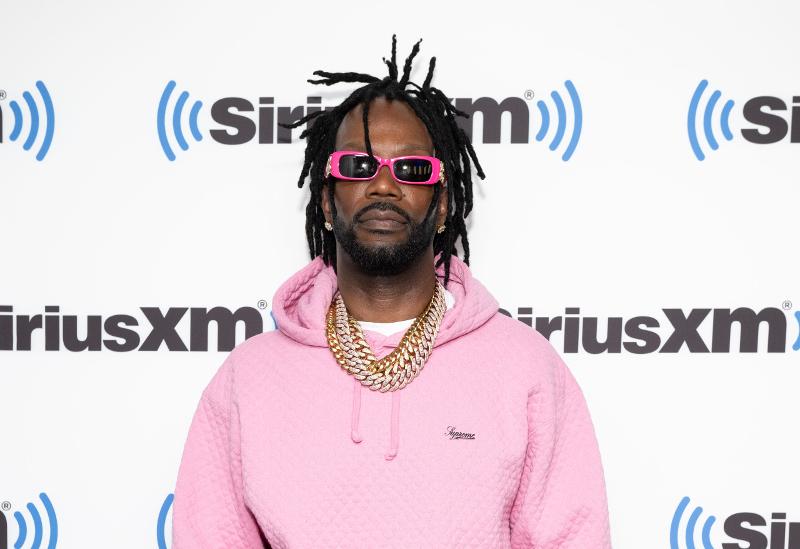Juicy J, the legendary recording artist and former member of Three 6 Mafia, has recently taken to social media to express his concerns about the declining sales in hip-hop music. In a video message, he highlights the fact that rap music is down 40 percent this year and calls for a meeting among industry professionals to address this issue. Let's delve into the reasons behind this decline and explore the potential solutions that Juicy J and other artists, producers, and composers can discuss in order to revive the genre's success.
The Declining Sales in Hip-Hop Music
Exploring the reasons behind the decline in rap music sales
Juicy J's concern about the declining sales in hip-hop music is not unfounded. In recent years, the genre has experienced a significant drop in sales, with rap music down 40 percent this year alone. This raises the question: what factors have contributed to this decline?
One possible explanation is the lack of chart-topping hits in the genre. It took until Doja Cat's "Paint the Town Red" to reach the number one spot on the Billboard Hot 100, marking the first rap song to do so since Nicki Minaj's "Super Freaky Girl" in August 2022. This suggests a scarcity of commercially successful rap tracks, which could be impacting overall sales.
Another factor to consider is the changing landscape of the music industry. With the rise of streaming platforms and the decline of physical album sales, the revenue streams for artists have shifted. While streaming has made music more accessible, it has also led to lower revenue per stream, making it harder for artists to generate substantial income solely from their music.
Additionally, the saturation of the market with new releases and the short attention span of listeners may contribute to the decline in sales. With an overwhelming amount of music available at any given time, it becomes challenging for artists to stand out and capture the audience's attention.
The Impact on Artists' Income
Examining the financial implications for rappers and other industry professionals
Rap music's decline in sales has significant implications for artists' income and livelihood. As Juicy J pointed out, rappers rely on various revenue streams, including album sales, shows, publishing, and merchandise, to support themselves and their families.
With rap music sales down 40 percent, artists may experience a decline in album sales and streaming revenue. This can directly impact their ability to earn a substantial income from their music alone. As a result, artists may need to explore alternative avenues for generating revenue, such as brand partnerships, endorsements, and collaborations.
Furthermore, the decline in sales may also affect the financial stability of producers, composers, songwriters, and engineers who work behind the scenes. These professionals often rely on royalties and licensing fees, which are directly tied to the success of the music they contribute to. A decline in sales could lead to a decrease in their income as well.
The Need for Collaboration and Innovation
Exploring potential solutions to revive the success of hip-hop music
Juicy J's call for a meeting among industry professionals is a step in the right direction. Collaboration and innovation are key to reviving the success of hip-hop music. By coming together, artists, producers, composers, and engineers can brainstorm strategies to adapt to the changing music landscape and reach a wider audience.
One potential solution is to explore new marketing and promotional techniques. Artists can leverage social media platforms, streaming playlists, and targeted advertising to increase their visibility and attract new listeners. Additionally, collaborations between artists from different genres can help bridge the gap and introduce rap music to new audiences.
Furthermore, artists can focus on creating unique and compelling content that resonates with listeners. By pushing boundaries and experimenting with different sounds and styles, rap music can continue to evolve and captivate audiences. Innovation and staying ahead of trends are crucial in a rapidly changing industry.
Ultimately, the revival of hip-hop music's success requires a collective effort and a willingness to adapt to the ever-changing music landscape. By embracing collaboration, innovation, and a strong work ethic, artists can navigate the challenges and ensure the longevity of the genre.
Conclusion
The declining sales in hip-hop music, as highlighted by Juicy J, are a cause for concern within the industry. With rap music down 40 percent this year, it is evident that the genre is facing challenges in maintaining its commercial success. However, there are potential solutions that artists, producers, composers, and engineers can explore to revive the genre's fortunes.
Collaboration and innovation are key in adapting to the changing music landscape. By coming together and leveraging new marketing techniques, artists can increase their visibility and attract a wider audience. Additionally, focusing on creating unique and compelling content that resonates with listeners can help rap music evolve and captivate audiences.
It is crucial for industry professionals to have open discussions and explore strategies to overcome the decline in sales. By embracing collaboration, innovation, and a strong work ethic, the future of hip-hop music can be secured, ensuring its longevity and continued success.

